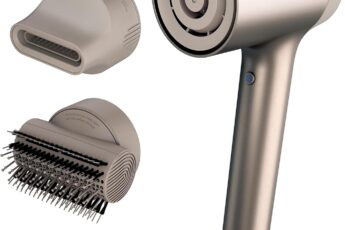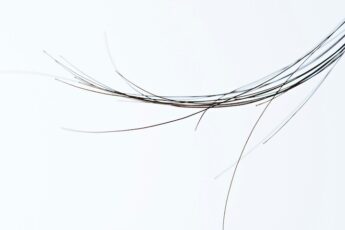I used to think growing my hair just meant buying the right oil or not straightening it for a while. Sound familiar? You do everything you’re “supposed” to do, and your hair still won’t grow. Or maybe it grows, but breaks just as fast.
So what’s really going on?
That’s where hair growth factors analysis comes in. This isn’t about products or hacks. It’s about understanding what’s happening under the surface — inside your body, on your scalp, and even in your daily habits.
If you’ve ever felt stuck in your hair journey, this is for you.
Let’s break it all down, together.
Table of Contents
Key Takeaways
- Hair grows in cycles — and disruption to that cycle can cause slow growth or shedding.
- Internal factors like hormones, nutrition, stress, and sleep have a huge impact.
- External factors like scalp health, products, and weather matter too.
- Tracking your own hair habits and symptoms can give you clarity.
- Progress takes time, but small consistent changes really do add up.
Understanding the Hair Growth Cycle
Okay, let’s start with the basics.
Your hair doesn’t grow in one straight line. It follows a cycle — and it’s always cycling, whether you notice or not.
Here’s how it works:
- Anagen (Growth phase): This is when your hair is actively growing. It can last 2 to 7 years depending on your genetics and health.
- Catagen (Transition phase): This is a short “resting” period. The hair stops growing and gets ready to fall out. It lasts a few weeks.
- Telogen (Shedding phase): This is when the old hair falls out and new hair gets ready to grow in its place.
Now here’s the important part:
If something affects this cycle — stress, hormones, diet, illness — your hair might jump into the shedding phase too early. That’s when you start noticing thinning or slow growth.
So if you’ve been wondering why your hair isn’t thriving, the answer might be buried in this cycle.

Internal Factors That Affect Hair Growth
This is where things start to get real. Because it’s not just about what you do to your hair. It’s also about what’s going on inside you.
Let’s take a look at the internal factors behind hair growth.
1. Hormones
Your hormones are like the project managers of your body — they tell everything what to do, including your hair follicles.
Estrogen: Helps keep your hair in the growth phase longer. That’s why many women experience thick hair during pregnancy — estrogen levels are high.
Androgens (like DHT): Too much of these, especially if you’re sensitive to them, can shrink hair follicles and slow down growth.
Thyroid hormones: If your thyroid is off (too fast or too slow), your hair might fall out more than usual.
So if your hair is shedding in clumps or feels thinner all of a sudden, it’s worth checking in on your hormones.
Also Read: Effortless Straight Hair Wrapping Methods You Can Do Before Bed
2. Genetics
Yep, this plays a role too. Some of us are born with hair that grows fast and long. Others? Not so much.
But here’s the thing — your genes set the potential, not the full outcome. You can still take care of your hair, protect your follicles, and help it thrive within your own limits.
So no, it’s not hopeless. It just means you’ll need to understand what your scalp responds to best.
3. Nutrition
Let me guess — you’ve heard about biotin?
While it’s one of the key nutrients, your hair actually needs a lot more than that to grow strong.
Some major players:
Protein: Hair is made of keratin, which is a type of protein. If you’re not eating enough, your hair won’t have what it needs to grow.
Iron: Low iron levels (especially common if you have heavy periods) can lead to hair loss.
Zinc, Vitamin D, B12: All of these support healthy follicles and strong strands.
You don’t need to take 20 supplements. But paying attention to what you eat really does make a difference — more than any serum can.
4. Stress and Sleep
You already know stress isn’t good for you. But here’s something people don’t talk about enough: cortisol, your stress hormone, directly messes with your hair growth.
When your body is in fight-or-flight mode all the time, it doesn’t care about growing hair. It’s focused on survival.
And if you’re not sleeping well? Your hair doesn’t get the repair time it needs.
So if you’ve been under pressure — mentally, emotionally, physically — give yourself a little grace. It’s not your fault. But it’s definitely worth healing.
External Factors That Affect Hair Growth
Now let’s talk about the stuff happening outside your body. These things are easier to spot, but often just as powerful.
1. Scalp Health
Think of your scalp like the soil for your hair. If the soil is dry, clogged, or inflamed, nothing good can grow from it.
Here’s what to look out for:
- Constant itching or flaking
- Pain when touching your scalp
- Bumps or redness
- Buildup from products or oils
If you’re layering product after product but not cleansing your scalp properly, your follicles might be suffocating.
A clean, calm scalp = a healthy space for hair to grow.

2. Hair Products and Treatments
I’m not saying you can never use heat again. But there’s a balance.
Some things to think about:
- Are you over-washing?
- Are your shampoos too harsh?
- Are you using relaxers or dyes too often?
- Do you deep condition regularly?
Also — look at your product labels. Some ingredients (like sulfates or drying alcohols) strip moisture and weaken your hair over time.
3. Weather and Climate
This one surprised me when I first learned about it.
In cold, dry weather, your hair might grow slower — or break more. In humid weather, your scalp might get oily faster or even become irritated.
That’s why your routine might need to shift from season to season. Your hair has different needs depending on what’s happening around you.
How to Analyze Your Own Hair Growth
So, how do you actually apply all this to yourself?
You don’t need a lab. You just need to slow down and notice.
Ask yourself:
- How often am I shedding hair — and how much?
- Is my hair breaking at the ends or falling from the root?
- Has my diet changed recently?
- Am I dealing with stress, illness, or hormone shifts?
- What’s my scalp feeling like lately?
You can also:
- Take monthly progress pictures
- Track your wash days and product use
- Keep a simple hair journal
And if things still feel confusing or out of control, it’s okay to talk to a dermatologist or trichologist. Sometimes you need someone to look closer.
Check Out: The Ultimate Guide to Perfect Hair pH Level Optimization: How to Bring Your Hair Back to Balance
What You Can Do to Improve It
Now for the good part — the things that actually help.
Here’s what I recommend if you want to support your hair growth from all angles:
- Start inside: Eat more protein, hydrate, and check in on your vitamins.
- Protect your peace: Stress less, sleep more. Easier said than done, but worth trying.
- Clean your scalp: Don’t pile on oils without washing them off.
- Trim the damage: Holding onto split ends won’t help you.
- Be gentle: Use a satin bonnet, limit tight styles, and avoid yanking your hair during detangling.
- Be consistent: Hair needs time. What you do today shows up 2–3 months later.

Conclusion
So here’s what I’ve learned the hard way — it’s not about doing more. It’s about doing the right things for your hair.
Hair growth factors analysis isn’t just some fancy phrase. It’s the key to figuring out what’s really going on. When you understand what affects your hair from the inside out, you stop wasting energy on random tips — and start seeing progress that actually feels real.
You don’t need to have it all figured out today. But maybe now, you know where to start.
Frequently Asked Questions
How do I know if my hair is actually growing?
Take monthly photos, track the length of a specific section, and note how often you’re trimming split ends.
What foods are best for hair growth?
Foods rich in protein, iron, and vitamins like eggs, leafy greens, lentils, nuts, and salmon are great for hair health.
Can stress really make my hair fall out?
Yes — high cortisol levels can push your hair into the shedding phase early. Managing stress can help rebalance your hair cycle.
How long does it take to see results from changing my routine?
Usually 2 to 3 months. Hair grows slowly, and it takes time for changes to show up.



